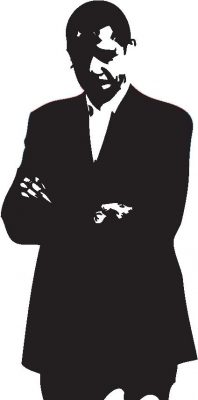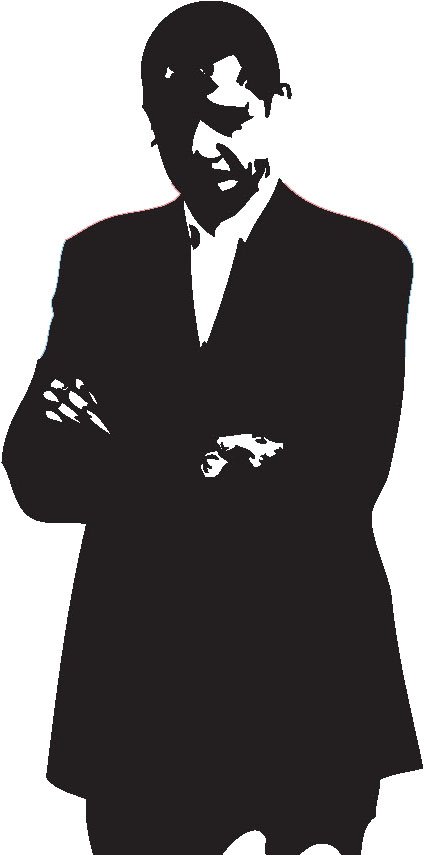 In his first year in office, Barack Obama gave several exceptional speeches on foreign policy. In Prague, he endorsed nuclear disarmament. In Cairo, he called for a new engagement with the Islamic world. In Oslo, he repudiated torture. At these moments, the new president firmly broke with the policies of his predecessor and provided a glimpse of what a new, cooperative, just U.S. foreign policy could be.
In his first year in office, Barack Obama gave several exceptional speeches on foreign policy. In Prague, he endorsed nuclear disarmament. In Cairo, he called for a new engagement with the Islamic world. In Oslo, he repudiated torture. At these moments, the new president firmly broke with the policies of his predecessor and provided a glimpse of what a new, cooperative, just U.S. foreign policy could be.
But Obama the exceptional speaker also remained anchored in an exceptionalist tradition. In other words, he is the president of a country that has historically considered itself an exception to the rules and realities governing other countries.
This exceptionalist tradition was no more apparent than in the administration’s policy in Afghanistan. After considerable internal discussion, which in itself was a marked departure from the rush to judgment of past administrations, the president committed in December to a second increase in troops in Afghanistan on top of the initial surge announced in February. This second escalation came at a time when five indicators should have pushed Obama in the other direction. By the end of the summer, public opinion in the United States had turned decisively against the war, with only 24 percent supporting U.S. troop increases. In Afghanistan, meanwhile, positive assessment of U.S. activity in the country dropped from 68 percent in 2005 to 32 percent in 2009, and only 18 percent supported troop increases. Among NATO allies, public opinion turned even more sharply against the war, prompting NATO governments to set timetables for withdrawal. And finally, elite opinion shifted, as even conservative pundits like George Will and Joe Scarborough called on the president to start withdrawing troops.
The fifth indicator, the historical record, should have been the clincher. Afghans successfully resisted the Greeks, the British, and the Soviets. The failure to capture Osama bin Laden and eradicate the Taliban under the Bush administration should have suggested that the United States isn’t an exception to the rule. Like the Vietnam War for Lyndon Johnson, the Afghanistan War is shaping up to be the defining foreign policy of the Obama administration. Because of its cost and unpopularity, the war threatens the viability of the president’s domestic agenda.
Indeed, the administration’s myriad domestic programs — health care, stimulus package, jobs bill — all require hundreds of billions of dollars. But the one place the president hasn’t touched is the Pentagon lockbox. The Afghanistan and Iraq wars have pushed Pentagon spending to $630 billion for 2010 (which doesn’t include the nuclear budget and several other pots of military spending). The Obama administration, despite its need to find money for domestic priorities, increased military spending. True, it successfully took aim at some Cold War weapons systems, like the F-22 fighter aircraft. It canceled the missile defense bases in Poland and the Czech Republic (thus improving relations with Russia and making a treaty on nuclear weapons reductions more likely). But here too the Obama administration apparently believes that it’s an exception to the rule that buying lots of guns and lots of butter ultimately breaks the bank.
On international law, the Obama administration signaled that the United States would again respect certain universally accepted norms when it outlawed torture and recommitted to the Geneva Conventions. But the administration also refused to back away from the policy of extraordinary rendition whereby suspects are seized outside the United States and then flown to yet another country for interrogation. It has also not succeeded in closing the Guantánamo detention facility. On multilateralism, the administration agreed to pay U.S. arrears to the United Nations and signed the UN Convention on Disabilities. But Washington continues to be an outlier on the Law of the Sea, the conventions on landmines and child soldiers, the Comprehensive Test Ban Treaty, and the International Criminal Court.
As a candidate, Obama promised to reach out to U.S. adversaries that unclenched their fists. It is perhaps too early to judge the success of what amounts to slow and deliberate diplomacy. The United States is at least talking with North Korea and has begun to explore options with Burma. The negotiations with Iran haven’t achieved any success, but at least the Pentagon hasn’t conducted bombing raids on suspected nuclear facilities. The move to include development as a consideration in the human rights realm and the lifting of the global gag rule that restricted U.S. funding for family planning were both welcome shifts in policy.
In other respects, however, the actions undertaken by the administration have undercut the impressive rhetoric of the president’s speeches. In the Cairo speech, Obama showed great sensitivity in reaching out to the Islamic world, but U.S. military actions have killed thousands of Muslim civilians in “collateral damage” and the president has refused to apply real pressure on Israel to compromise to achieve genuine Palestinian self-determination. The administration’s support of an overall missile defense plan (even without bases in Central Europe) and the Pentagon’s upgrading of conventional strike capabilities have also reduced the chances of achieving meaningful nuclear arms reductions with the Russians. The U.S. policy of using drones and paramilitary teams to assassinate adversaries — which violates not only international law but also a U.S. executive order that originated in the Ford administration — undermines the lofty statements of principle articulated by Obama in his Nobel Prize acceptance speech. And the promise at the Summit of the Americas, of “engagement based on mutual respect and common interests and shared values,” was belied by the administration’s reversal of its opposition to the coup leaders in the lead-up to the November elections in Honduras.
There is, of course, still time for the Obama administration to fashion a different kind of exceptionalism. As the world’s biggest emitter of greenhouse gasses after China, the United States could take the lead in climate negotiations by promising to reduce emissions by 80 percent of 1990 levels by 2050. As the country most responsible for the financial deregulation that threw the global economy into recession, the United States could take the lead by supporting the Tobin tax on financial transactions. As the world’s biggest military spender, the United States could freeze and then cut the Pentagon budget, challenging other big spenders to do the same.
The Obama administration is certainly an improvement over the Bush years. Its several achievements — banning torture, lifting the global gag rule, canceling missile defense bases in Europe — are worthy of praise. But the decision to escalate in Afghanistan — while escalating in Pakistan and intervening militarily in Yemen — brings down the score. On his report card after the first year the president passes, but barely and with a note in the margin: needs improvement.
